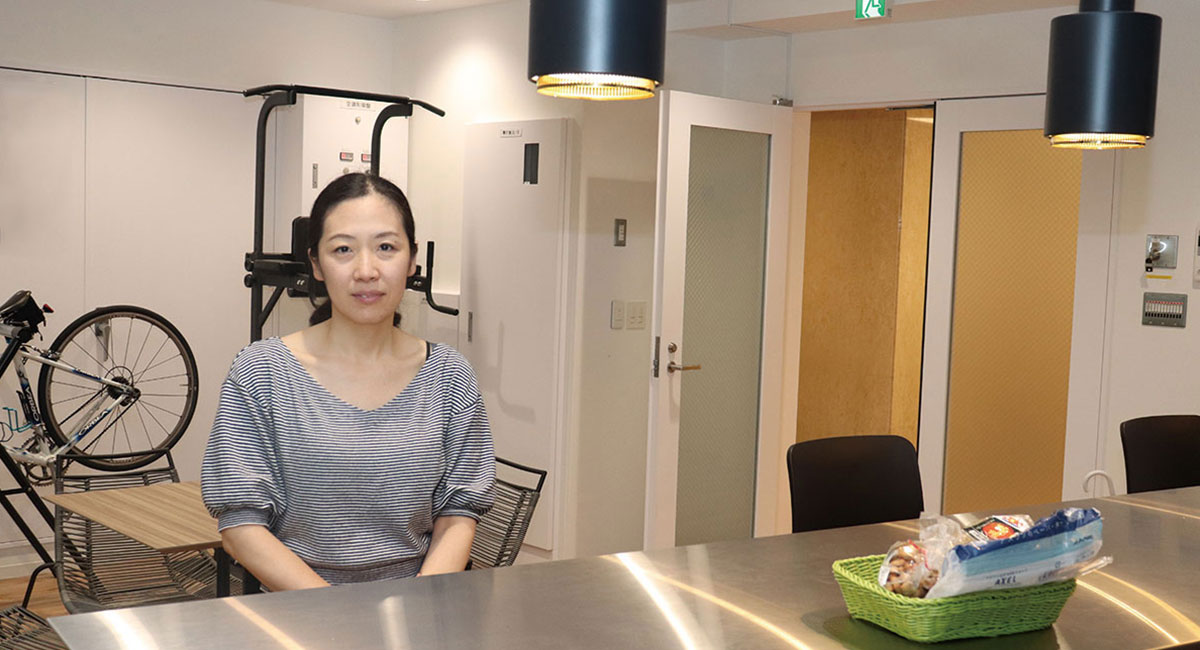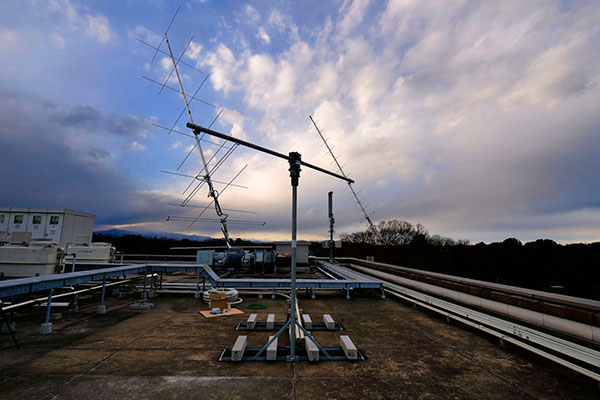A constant connection to space with satellite antenna-sharing

UTokyo 30s
Up-and-coming young entrepreneurs
Of the more than 350 University of Tokyo spin-off ventures, we have chosen to feature those by seven energetic young entrepreneurs in their 30s. Four of these companies are located in the venture support facilities on the Hongo Campus, one in the support facilities on the Kashiwa Campus, and one each in the Tokyo neighborhoods of Otemachi and Gotanda. How do these young people go about their daily work, and what kind of people are they? A few glimpses are presented here.
| Satellite communications infrastructure-sharing business |
A constant connection to space with satellite antenna-sharing


The history of artificial satellites began with the launch of Sputnik 1 in 1957. Today, satellites have become more compact and the costs have dropped considerably, which makes entry into the space industry more accessible and will create more activity in the industry. There are, however, constraining factors. As a satellite orbits the Earth once every 90 minutes or so, the length of time a single antenna on Earth can communicate with it is approximately 10 minutes, or a total of only 40 minutes a day. Aware of this inefficiency for both satellite users and antenna owners, Naomi Kurahara’s Infostellar, Inc. is making a business out of antenna sharing across the globe.
“When people go overseas, they borrow a Wi-Fi router for communications, right? Routers can be used without worrying about different communications standards of countries and operators, thanks to technology working in the background to interconnect different protocols. What we are providing is similar technology for communicating with satellites.”
Born in Oita Prefecture, Kurahara has had a passion for space from a young age after seeing Japanese astronauts and the recently closed Space World theme park in Kitakyushu, Fukuoka Prefecture. She entered the Kyushu Institute of Technology, where in the doctoral program she studied the behavior of satellites in space. She then went on to become a project researcher in the University of Tokyo Graduate School of Engineering, and it was there she joined a project led by Professor Shinichi Nakasuka, a pioneer in ultra-compact satellites.
“Thanks to my frequent participation in my student days in UNISEC, the University Space Engineering Consortium, Nakasuka was kind enough to contact me. While there were other options at the time, I was persuaded by his words that ‘We are going to make not just satellites, but the future of Japan’s space industry.’”
It was during this project that she strongly came to realize the need for an antenna-sharing business. They were using an antenna located in the town of Taiki, Hokkaido, but after she experienced the stress of working under time and capacity constraints, and of hunting around for other available antennas, she came up with the idea for Infostellar. When the project came to an end, she became involved in operations console development at a satellite control system company. Then in 2016, she launched Infostellar with two of her peers, and what was born at that time was more than just the company.
“After launching the venture in January, I became pregnant and delivered my son in December. It was a hectic time, but my partners in the company were very cooperative.”
What she learned for the first time after starting marketing and sales is that the number of users could not grow without making more antennas available, but without more users, the number of antennas would not increase. Her own antenna, however, accurately detected a large demand in the world for the services that her company provides. “Which comes first, the chicken or the egg?” What awaits after solving that dilemma is a future with constant satellite connection between the Earth and space.
| Q & A | |
|---|---|
| How do you spend your days off? | "Playing with a Thomas the Tank Engine train set, or visiting railway museums.” |
| Which entrepreneur do you admire? | “Kotaro Chiba, one of the founders of Colopl Inc. and an angel investor.” |
| What space movie do you recommend? Who is your favorite writer? | “I like ‘Arrival’ for its mystery-like feeling.” “Agatha Christie.” |
| Do you see a generation gap in the world of space development? | “Those in their 60s seem more energetic than those in the 40s and 50s. People in their 30s also see space as a business.”” |
 One of the shared antennas that is a part of Infostellar’s StellarStation network
One of the shared antennas that is a part of Infostellar’s StellarStation network* This article was originally printed in Tansei 39 (Japanese language only). All information in this article is as of September 2019.



 Naomi Kurahara
Naomi Kurahara


